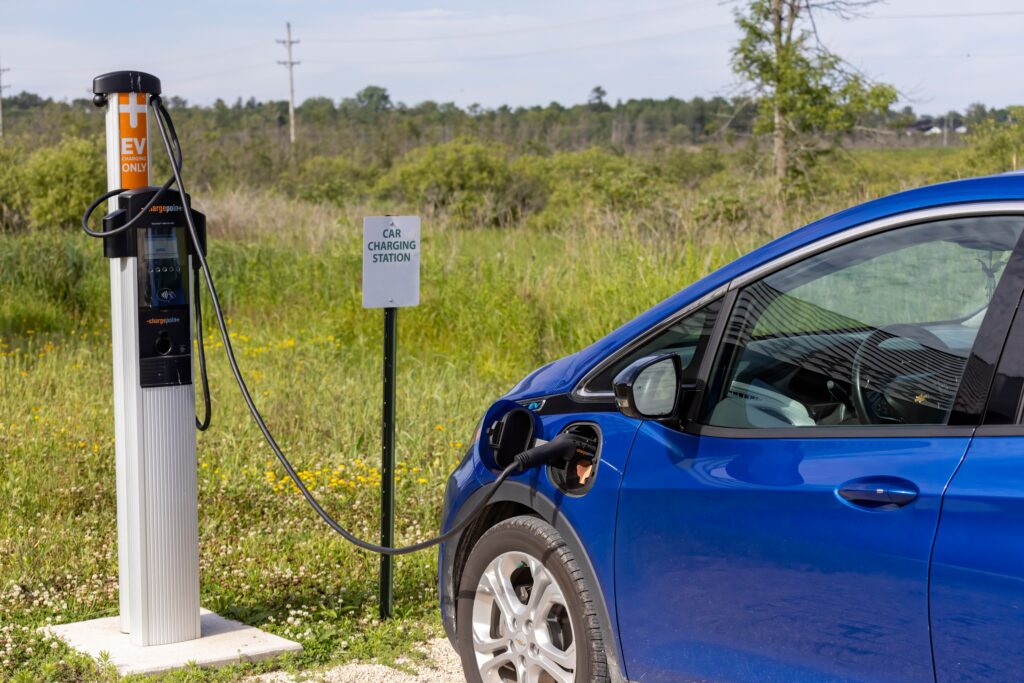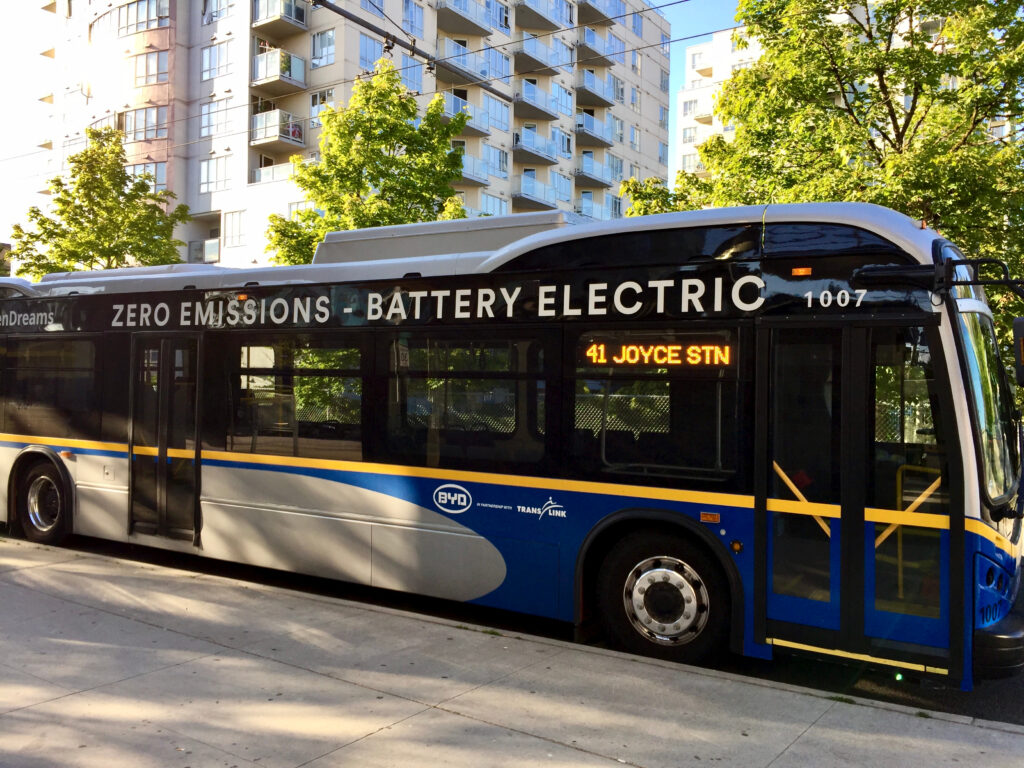

The summit—often dubbed the “three amigos summit”—was the tenth in the series that began in 2005 and the second since U.S. President Joe Biden took office two years ago. (The NALS process was on pause during the administration of former President Donald Trump.)
Mexican President Andrés Manuel López Obrador welcomed Biden and Canadian Prime Minister Justin Trudeau to Mexico City for the trilateral discussions, which took place on January 10. He held separate bilateral meetings with Biden the day before and with Trudeau the day after.
One issue on the NALS agenda was the need to expand the use of electric vehicles, including by developing a plan to establish operating standards and install charging infrastructure along the three countries’ international borders. That is the kind of practical step that will have long-term implications, according to José Antonio Meade, who has served in several cabinet positions in former administrations in Mexico, including as Secretary of Energy.
“If the electric vehicle transition is going to be successful, in part that will be because the three leaders got together and spoke about the necessity to have standards for the chargers,” Meade said.

A charging station for electric vehicles in Dos Rios, Texas. The leaders talked about plans to develop shared standards for charging infrastructure.
He was one of several experts from Mexico, Canada, and the United States who spoke at a forum on January 20 co-hosted by the Washington-based Council of the Americas and the Woodrow Wilson Center’s Mexican Institute, titled “North America after NALS: What Comes Next?”
Moderator Eric Farnsworth, who leads the Washington office of the Council of the Americas and the Americas Society, framed the recent summit as an opportunity to rebuild, reset, and rebalance “the North American idea.” The panelists, for their part, seemed to agree that the trilateral relationship is one that is worth preserving and strengthening.
“There are very few issues globally that do not benefit from a North American perspective rather than just a bilateral perspective or just a country-by-country perspective,” Meade said.
The breadth of today’s NALS agenda, he said, has opened the door to concrete progress on specific issues instead of focusing only on perennial “irritants” between Mexico and the United States, such as migration policy and border security.
“Relationships are complicated, especially when they’re amongst neighbors,” he said. Having a broad array of issues on the table, he said, means the countries can seize opportunities to deepen cooperation in certain areas even if they still have hard work to do in others.
Peter Boehm, a current Canadian Senator and former diplomat, offered some perspective as someone who was Canada’s senior official responsible for the North American Leaders’ Summit during the first four of these meetings.
“It was all about security, with prosperity catching up,” he said, adding that he would not have thought back then that today’s agenda would include such items as semiconductors, critical minerals, clean energy, and hydrogen.
“All of these are very new and they are cutting-edge in terms of what is happening in other parts of the world and in large trade groupings such as the European Union, for example,” said Boehm, who also served as his country’s permanent representative to the Organization of American States (OAS) from 1997 to 2001.
Former Mexican Senator Vanessa Rubio noted that the three countries have the opportunity to reap new benefits and become more competitive as a region in today’s global environment, which she described as one of post-pandemic disruption, uncertainty, and “democratic recession.”

Wind turbines line an interstate highway between El Centro and San Diego, California. In their joint declaration, the leaders agreed to “move swiftly to accelerate the energy transition by deploying clean energy solutions.”
“What I like to think is that we are at a crossroads of a world that faces new opportunities,” Rubio said. It is important for Mexico, Canada, and the United States to keep putting policies in place “to maintain ourselves as trusted partners,” she said, adding that the three leaders’ stated intention to strengthen North American supply chains is particularly promising.
The Declaration of North America, issued at the summit, had this to say on the topic: “To boost regional competitiveness, the three countries will seek to forge stronger regional supply chains, as well as promote targeted investment, in key industries of the future such as semiconductors and electric vehicle batteries, which will be critical to advance electric vehicle development and infrastructure.”
The governments announced that they will hold the first-ever trilateral forum on semiconductors in early 2023, with the participation of cabinet-level representatives from the three countries and senior industry representatives. They will also coordinate supply chain mapping efforts to assess unmet needs and identify “complementary investment opportunities.”
The declaration highlights commitments across six pillars: diversity, equity, and inclusion; climate change and the environment; competitiveness; migration and development; health; and regional security.
Among the initiatives related to climate and energy announced at the summit, according to official fact sheets, the countries will:

The three countries will share best practices on decarbonizing public buses. Here, an electric bus in operation in Vancouver, Canada.
Some of the issues the leaders discussed, such as competitiveness, overlap with the United States-Mexico-Canada Agreement (USMCA), which entered into force in 2020. The countries have several active disputes going on through the trade agreement (which is known as CUSMA in Canada and T-MEC in Mexico), including a dispute over Mexican energy policies that has been in settlement consultations, with an outcome still pending.
The trade agreement itself was not part of the discussions in Mexico City; rather, the leaders looked to build on some of its positive aspects, according to Luz María de la Mora, a former Undersecretary for Foreign Trade in Mexico. She underscored that the three countries must continue to work toward a common agenda as partners, allies, and friends.
“We don’t need to agree on every single issue, but we know that the three together are stronger, and it is in our individual interest to be part of this region,” she said.
Louise Blais, a former senior Canadian diplomat who currently advises the Business Council of Canada, called the summit “upbeat” and encouraged the business community and academia to help “shift the narrative” on the North American relationship to a more positive one.
“Too much of the media’s focus has been on the issue of the border, on security, on things that don’t work,” she said. “I think we need to compete with that.”
Good follow-up will be key to moving forward on the agreements reached in Mexico City and advancing the trilateral relationship, said Earl Anthony (Tony) Wayne, a former U.S. Assistant Secretary of State for Economic and Business Affairs and former Ambassador to Mexico.
“We aren’t going to be able to move away from each other,” he said of the three countries. “Even if we don’t agree on everything, we’ve got to work together.”
 View Map
View Map